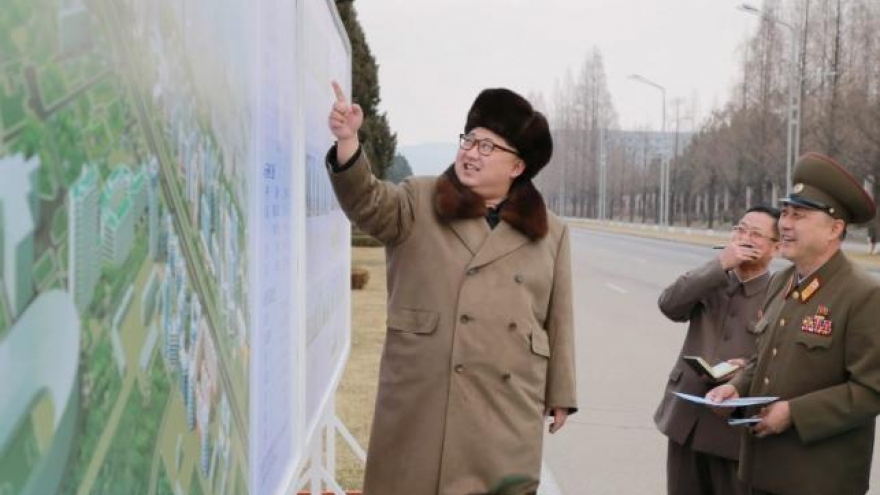DPRK claims rocket engine success; RoK on high alert
The Democratic People's Republic of Korea (DPRK) successfully tested a solid-fuel engine that boosted the power of its ballistic rockets, state media reported on March 24, as the Republic of Korea (RoK)'s president ordered the military to be ready to respond to the DPRK's "reckless provocation."
Pyongyang's claim indicates it is continuing to develop an intercontinental ballistic missile (ICBM) at a rapid pace in defiance of UN sanctions, and amid assessment by the RoK's officials that it could conduct a new nuclear test at any time.
The isolated state has in recent weeks stepped up bellicose rhetoric, threatening pre-emptive nuclear strikes against Washington and Seoul, as well as making claims of advancement in its weapons technology.
The Rodong Sinmum, the DPRK's ruling party newspaper, carried photos of leader Kim Jong Un on site as a rocket engine laid horizontally on the ground emitted a fiery blast. A two-page report detailed the testing of the engine's structure and thrust.
"He noted with great pleasure that the successful test ... helped boost the power of ballistic rockets capable of mercilessly striking hostile forces," KCNA news agency said.
The DPRK said last week it had conducted a successful simulated test of atmospheric re-entry of a ballistic missile, and would soon test ballistic missiles capable of carrying nuclear warheads.
 |
On March 23, the DPRK repeated a threat to attack the RoK's presidential office, saying its large-calibre multiple rocket launch systems are on alert to strike the Blue House and its special operations unit is ready to go into action.
The RoK's President Park Geun-hye office said she had ordered a heightened state of alert and put the military on standby to "respond actively to reckless provocations by the DPRK."
US State Department spokesman Mark Toner repeated a call on the DPRK to "refrain from any actions and any rhetoric that raise tensions in the region and comply with its international obligations and commitments."
The current tension on the peninsula follows tough new UN sanctions against the DPRK over its nuclear and missile programs and coincides with annual military drills by the RoK and the United States.
The DPRK calls the exercises "nuclear war moves" and has threatened to respond with an all-out offensive. It has conducted a series of rocket launches in recent days.



